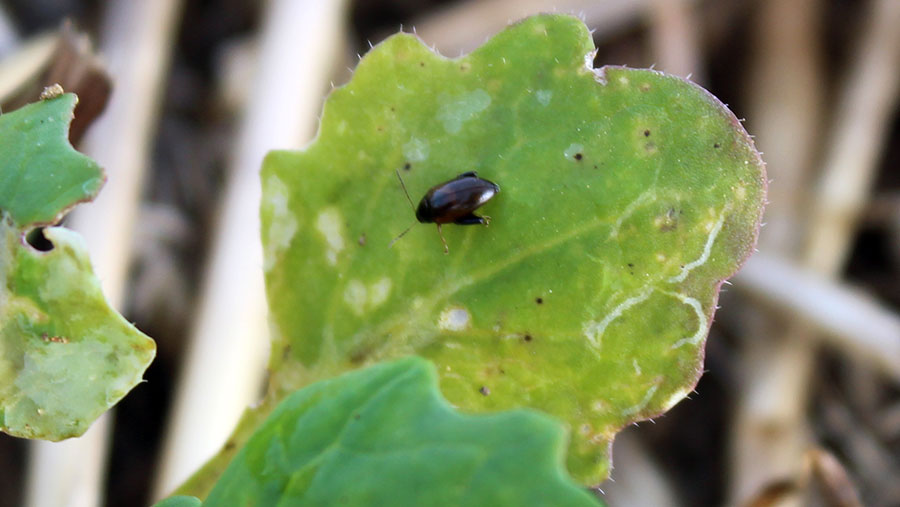8% of British rapeseed crop lost to flea beetle and drought
 © Oli Hill
© Oli Hill The scale of British oilseed rape crop failure this season may be worse than first feared, with a survey estimating a whopping 46,000ha has been written off.
The survey of 400 arable farmers who all grow winter oilseed rape, carried out by the Kleffmann Group, reports that 8.3% of the total British oilseed rape crop has now been lost.
Savage flea beetle damage combined with dry conditions in autumn share a large proportion of the blame for poor establishment.
Slug attacks and the ban on neonicotinoid seed treatments are also thought to have contributed to losses.
See also: How the new fertiliser guide will benefit farmers
With several counties in the South East known to be teeming with flea beetle activity, East Anglia is unsurprisingly the region where losses are highest – 17.9% of the total crop has failed according to the survey.
In November the 2017 rapeseed area was predicted to be 557,000ha, marking a 13-year low for the crop.
That figure was based on the results of the AHDB Early Bird Survey of growers, which combines actual plantings as well as cropping intentions over the coming months.
Taking into account the estimated losses from the Kleffmann study, the oilseed rape area now considered likely to make it through to harvest 2017 is set to be as low as 511,000 ha.
To add to the crop’s woes, the average rapeseed yield for harvest 2016 was a poor 2.6t/ha, compared with 3.5t/ha in 2015.

© Oli Hill
Roger Pratchett of Independent Business Resource, the UK agent for Kleffmann, says winter oilseed rape is still a useful break crop despite the crop falling out of favour with some growers.
“Oilseed rape is still important as a different crop to satisfy the three-crop rule and remains a very useful break crop for weed-control purposes, but its yields are variable and it is attacked by cabbage stem flea beetle, which in the past has been responsible for destroying crops early on.
“Even if you take the increased price of rapeseed into account, it is less profitable to grow.
“Growers have also remarked about the increasing input costs which impact negatively on gross margins,” he says.

